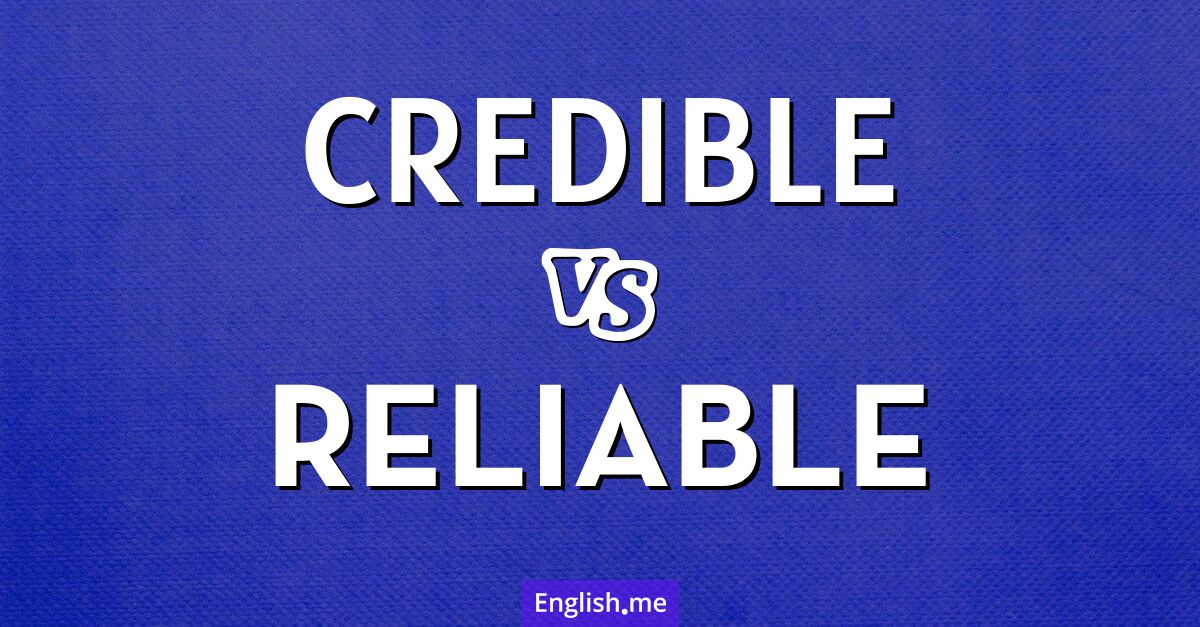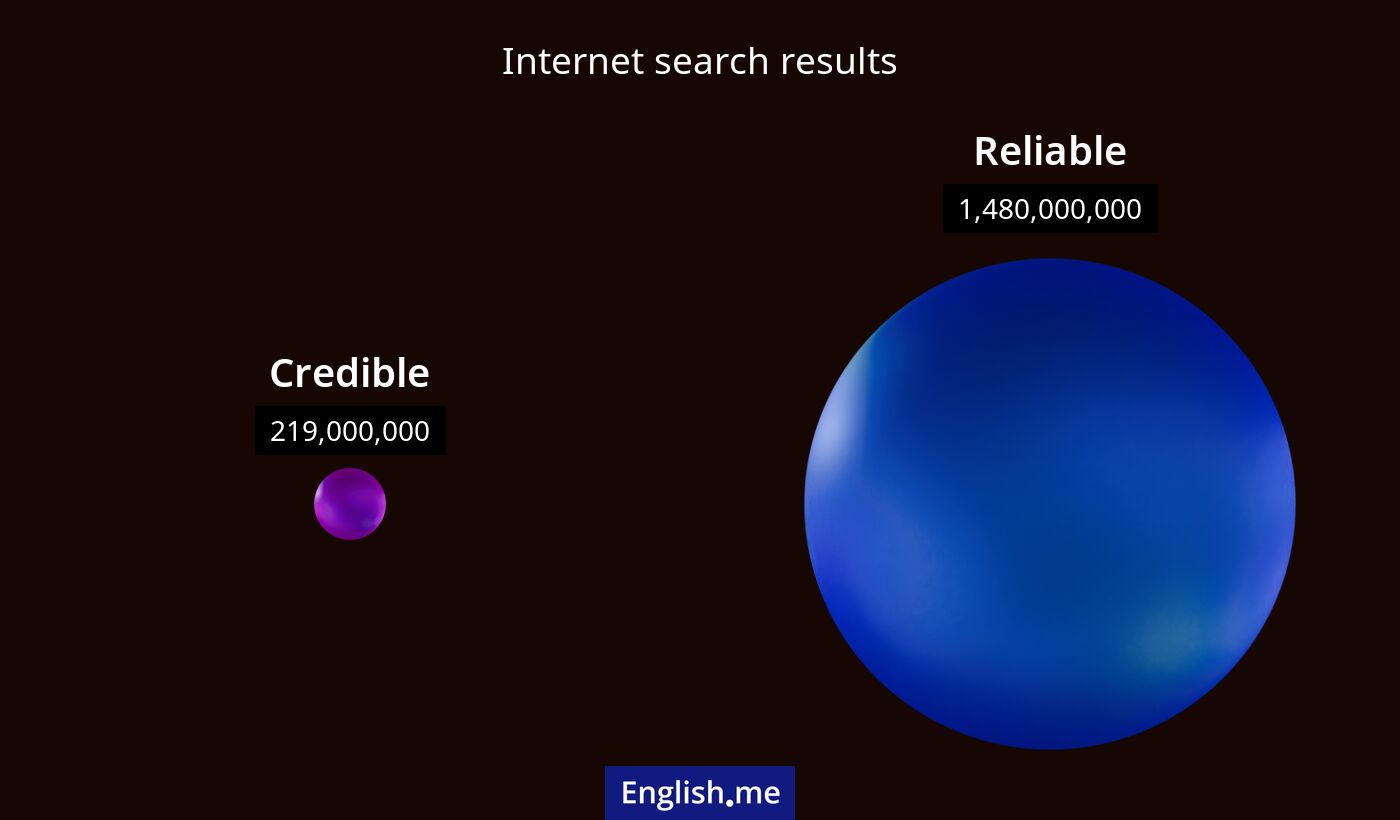"Credible" vs. "reliable": understanding the difference
Reviewed and edited by  Anwar Kareem 02/01/2025, 04:41
Anwar Kareem 02/01/2025, 04:41
English.me team member

 What is similar?
What is similar?
Both "credible" and "reliable" describe qualities related to trustworthiness and believability. They are used to indicate that something or someone can be trusted or accepted as true.
 What is different?
What is different?
"Credible" refers to something that is believable or convincing, often used when discussing the believability of a claim or source. "Reliable" refers to something or someone that is dependable and consistent in performance, often used when discussing the ability to be trusted over time.
 Which one is more common?
Which one is more common?

 Examples of usage
Examples of usage
Credible- The journalist provided a credible report on the incident.
- We need credible sources to support our argument.
- Her explanation was credible enough to convince the committee.
- He is a reliable employee who always meets his deadlines.
- The car is old but still very reliable.
- For accurate information, you should consult a reliable database.

 English
English español
español française
française italiano
italiano deutsche
deutsche 日本語
日本語 polski
polski česky
česky svenska
svenska Türkçe
Türkçe Nederlands
Nederlands